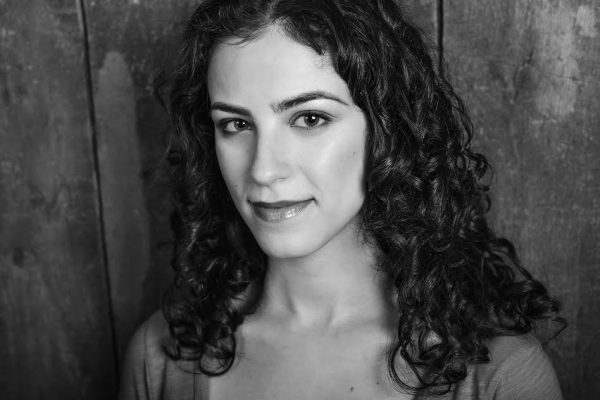Opera Preview: “Scalia/Ginsburg” — Mining (and Minding) the Political Gap
Derrick Wang’s Scalia/Ginsburg is a three character comic opera that combines elements of Jean-Paul Sartre’s No Exit and Perry Mason.

Cartoon of Ruth Bader Ginsburg and Antonin Scalia provided by Opera North.
By Susan B. Apel
Ruth Bader Ginsburg’s 15 minutes has lasted for years: she has now become an American cultural phenomenon. She has a rap name, Notorious RBG, and is the subject of a best-selling book, a recent popular documentary, and an upcoming feature film. Meanwhile, the United States is in turmoil: half of the country wonders whether it is possible to reach across an increasingly acrimonious political and cultural chasm, a gap that is separating family and friends. Given the state of the union, what could be more timely than an opera that probes Bader Ginsburg’s unlikely (to say the least) friendship with her ideological nemesis on the Supreme Court, the late Justice Antonin Scalia?
Derrick Wang’s Scalia/Ginsburg is a three character comic opera that combines elements of Jean-Paul Sartre’s No Exit and Perry Mason. In the piece, Scalia, a textualist famed (and sometimes criticized) for his sharp-worded and numerous dissenting opinions in Supreme Court cases, has been imprisoned in a room by a character called the Commentator. The charge: “substantial, and possibly excessive, dissenting.” Ginsburg appears to help and defend him.

Emily Misch, who sings the role of Justice Ginsburg. Photo: Opera North.
Wang claims inspiration for the piece came to him while reading Scalia’s dissenting opinions, in which he could hear a “rage aria.” Wang dramatizes this (underlined by the musical direction “furioso”) in this sample from his libretto. Scalia: The Justices are blind!/How can they possibly spout this—/The Constitution says absolutely nothing about this!/This right that they’ve enshrined. . . Oh, Ruth, can you read?”
But a monologue does not a opera make. Wang was aware of the deep, odd-couple friendship between the voluble, highly conservative Scalia and his colleague, the quiet and left-leaning Ginsburg. Ginsburg and Scalia sparred in chambers and on paper, rarely agreeing on matters before the Court. Outside of work, however, their families often traveled and spent holidays together. A famous photo shows the two of them sharing a ride on a camel, Scalia in front, Ruth behind. In a chummy interview, Scalia teased Ginsburg that the seating arrangement reflected male superiority. The diminutive Ginsburg deadpanned to the rotund Scalia that it was really an issue of weight distribution. Ginsburg and Scalia shared a love of opera and both of them had cameo roles in a party scene in a 2009 production of Ariadne auf Naxos; Ginsburg later debuted in a speaking part in a performance at the Washington National Opera.
Thus the unifying theme of the opera’s signature aria: “We Are Different. We Are One,” an anthem to the possibility of love and friendship across the political divide. Together, Scalia and Ginsburg sing “We are different/We are one./ The U.S. contradiction/The tension we adore/Separate strands unite in friction/To protect our country’s core/ . . .We are kindred/We are nine.”
Wang sees his work as bringing other disparate groups together as well: lawyers and artists. He views this piece as “a two-layer cake of law and opera.” He is delighted when “audience members with a taste for one particular layer end up enjoying the whole thing. Opera aficionados want to learn more about law, and lawyers who come to see the show often want to know more about opera.”

Derek Jackenheimer, who sings the role of Justice Scalia. Photo: Opera North.
Opera North, a professional opera company of several decades’ duration, is forging a new path with its presentation of Scalia/Ginsburg. Under the recent direction of Evans Haile, the company has looked for ways to draw in more diverse audiences, to reach beyond those who faithfully attended its fully-produced traditional operas during each summer season at the Lebanon Opera House in Lebanon, NH. Opera North is spearheading, in partnership with the US National Park Service, the renovation of the riverside Blow Me Down Farm in Cornish, NH into a “Park for the Arts.” It was the site this past summer of a production of “Singers and Swingers,” an unexpected and effective pairing of opera singers and circus performers.
The originally-scheduled performance of Scalia/Ginsburg at the Briggs Opera House in White River Junction, VT on October 12 sold out quickly. Two more performances have been added: another at the Briggs on October 13 at 5 p.m, and a third on October 14 at 2 pm at the Dana Center, Saint Anselm College, Manchester, NH. The opera is sung in English, and will feature a post-production discussion with composer Derrick Wang.
Scalia/Ginsburg premiered in 2015 at conductor Lorin Maazel’s Castleton Festival, followed by a performance at the Glimmerglass Festival in 2017. The initial showing at the Briggs Opera House will the opera’s third public performance.
Susan B. Apel is a writer and law professor whose creative nonfiction and poetry has appeared in Vine Leaves Literary Journal, Best of Vine Leaves 2015, Rhizomes, The Vignette Review, Woven Tale Press, Bloodroot, and the Fredericksburg Literary and Art Review. Her blog, ArtfulEdge, in which she writes about arts in the Upper Connecticut River Valley, appears regularly on the dailyUV.com. She is also a contributor to the newspaper, Vermont Woman. She lives in Lebanon, NH.
